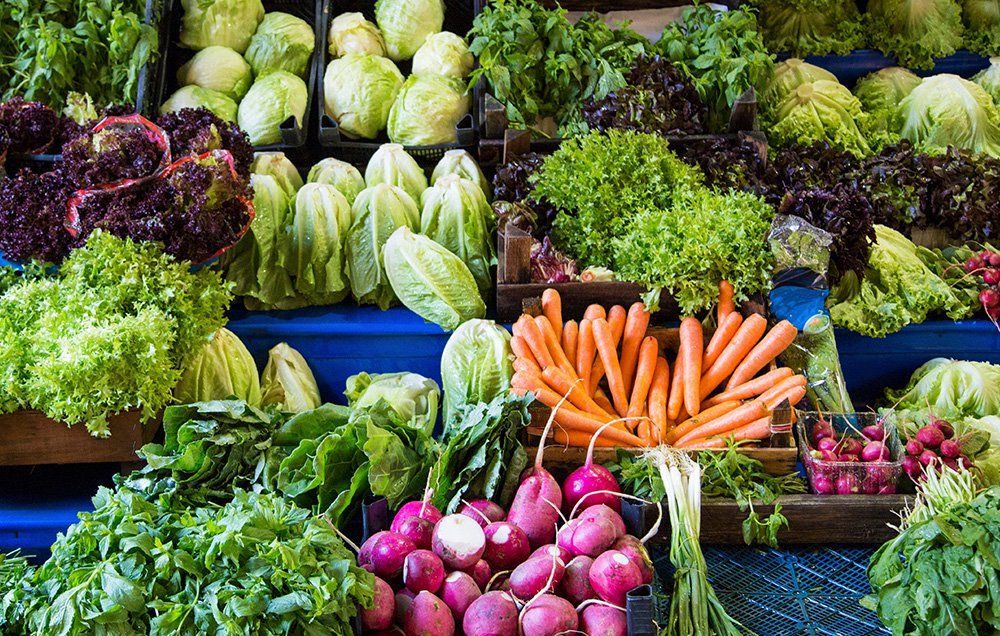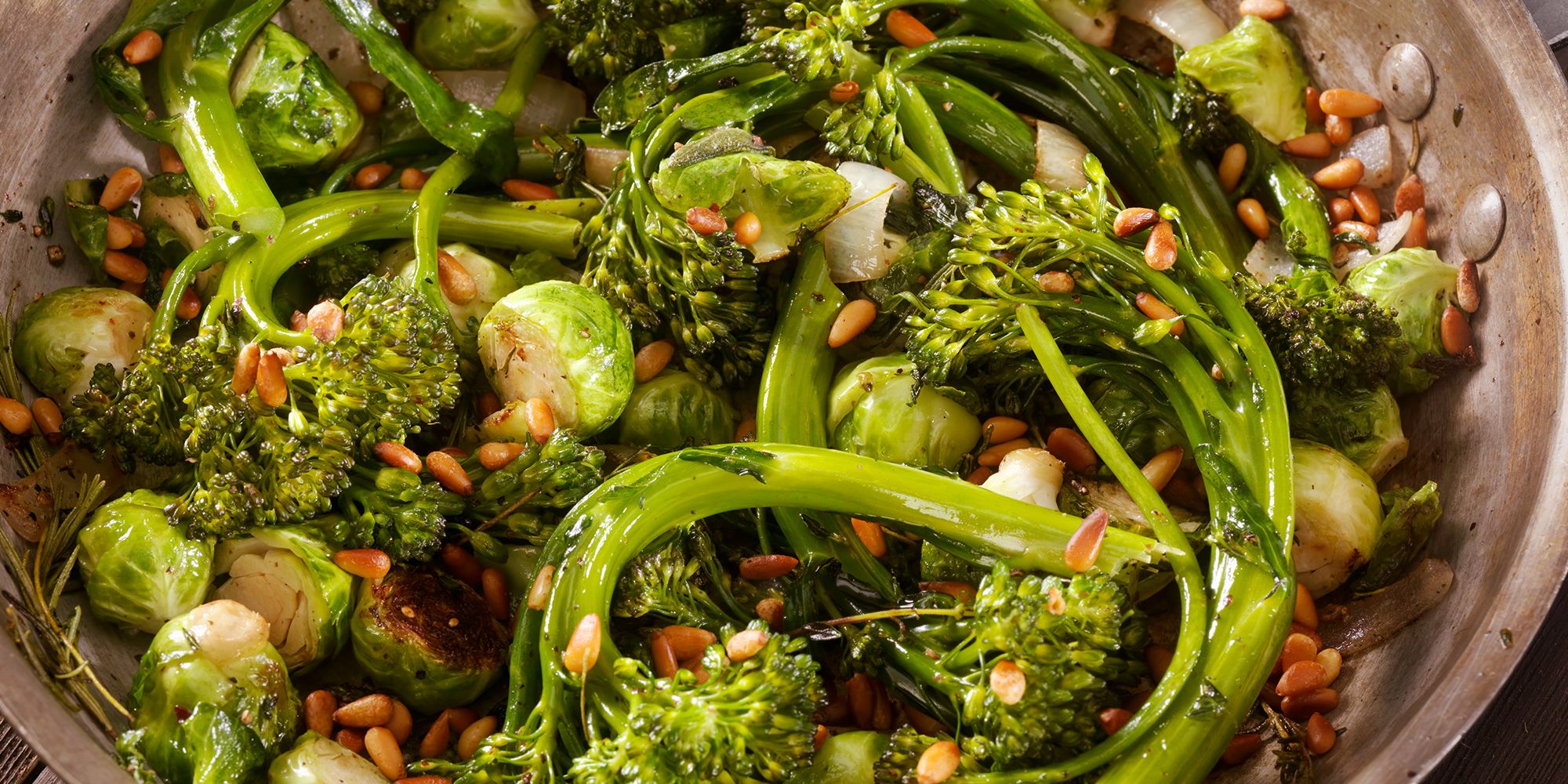Anyone who’s ever had a bowl of sweet potato fries knows that the root vegetable is is truly a gift from earth. Somehow sweet potatoes strike the perfect balance between being succulent and sweet, and it also helps that they’re touted as a super nutritious food. How many times have you had a friend opt for the sweet potato over the regular one because they’re supposedly healthier? I’m def guilty of it.
There’s no doubt that sweet potatoes are healthy. They’re full of nutrients and vitamins that help your body perform its most important functions. But sweet potatoes are also pretty up there in carbs when compared to other vegetables. Potatoes are significantly higher in carbs than vegetables like cucumbers, tomatoes, and zucchini, or leafy vegetables, says Elizabeth Huggins, RDN at Hilton Head Health.

Whether sweet potatoes can aid your weight-loss goals ultimately depends on your eating plan (which is your personal biz!), as well as how you prepare them. Someone trying to cut out carbs may have to pay extra attention to sweet potato servings, for example.
If you’re unsure about how sweet potatoes fit into your diet, read on for information about how sweet potatoes can impact weight loss, according to dietitians.
Think of sweet potatoes more like a starchy carb than a vegetable.
Since sweet potatoes (well, potatoes in general) are greater in carbs than most other vegetables, it may be helpful to look at them as a grain when you’re planning your meals. They make a good source of quality carbs, but if you are watching your carb intake, it’s easy to overdo it on sweet potatoes.
Sweet potatoes come in a range of shapes and sizes, so the size will determine the carb and calorie quantity you’re getting, says Huggins. “An eight-ounce sweet potato is often referred to as medium, while a 12-ounce potato is large—about the size of two tennis balls sitting next to each other,” she explains. Once cooked, a plain large sweet potato can pack almost 250 calories and 60 grams of carbs, says Huggins.


Though your serving might depend on what your health goals are, Alana Kessler, RD, says that a proper serving may be comparable to a clenched-fist worth of sweet potatoes. That’s about three to four ounces.
If you’re on a keto diet, you may want to avoid sweet potatoes completely, says Huggins: “If you are trying to achieve ketosis, you will find there is not much room for the carbs from potatoes on a ketogenic diet.”
If you’re on another type of low-carb diet, there may be room for sweet potatoes on your plate when mixed with other veggies, but it depends how low-carb you want to go, adds Huggins. “You may be able to include a small amount of them as an accent in a meal,” she says. “For example, you might mix 1/4 cup of sweet potatoes in with a more generous serving of roasted broccoli.”
Sweet potatoes are loaded with fiber, vitamin C, and other necessary nutrients.
Kessler says that the fiber and glucose content of sweet potatoes can help with weight loss since they provide sustainable energy that is useful if you add a fitness component to your weight-loss journey. “They are great to eat pre- and post-weight training workout, as they provide sustainable energy and essential nutrients which help with electrolyte balance and allow the body to continue to preserve muscle mass,” Kessler explains.
Sweet potatoes contain more antioxidants and fiber than regular potatoes, and slightly fewer calories.
Fiber can also help you feel fuller for longer, adds Huggins. “Baked or boiled sweet potatoes contain both soluble and insoluble fiber which adds volume,” Huggins says. “Their water content adds weight to a meal, helping to create a sensation of fullness in contrast to a bag of chips which are lightweight, take up little space, but are calorically dense.” Sweet potatoes are also a great source of beta carotene, potassium, and vitamin C, which support a healthy immune system.
Another way sweet potatoes can aid in weight loss? They pack resistant starch. Not only does resistant starch have fewer calories than regular starch, but it can also make you feel fuller for longer by giving you greater feelings of satiety.
Both regular potatoes and sweet potatoes carry resistant starch content, but sweet potatoes do contain more antioxidants and fiber than regular potatoes and are just a little lower on the calorie scale, says Huggins. But it depends how you prepare them. “How they are prepared can make or break the nutritional profile of either potato,” Huggins adds.
The best way to prepare sweet potatoes for weight loss is to steam, bake, or roast them.
Sorry, but having sweet potatoes in fry form probably isn’t the most weight loss- friendly idea. Frying them or adding high-cal toppings like bacon might pack on many extra calories that compromise your weight-loss goals, says Kessler. She recommends steaming or roasting your sweet potatoes with a bit of cinnamon.
“Cinnamon is a spice used to help keep blood sugar levels balanced and help manage cravings,” she says “The combination of these two together within healthy portion control and regular exerciseoffer a delicious option that is satisfying without compromising weight loss goals.”
Huggins add that you should explore using a variety of other warm spices, like nutmeg or sweet paprika, on your baked, roasted, or boiled sweet potatoes to add an extra dash of flavor.
If you’re looking for more healthy recipes ideas for preparing yours, try these Super Fast Instant Pot Sweet Potatoes, this Roasted Sweet Potato Salad, or this low-cal Sweet Potato Casserole.
Source: Read Full Article

